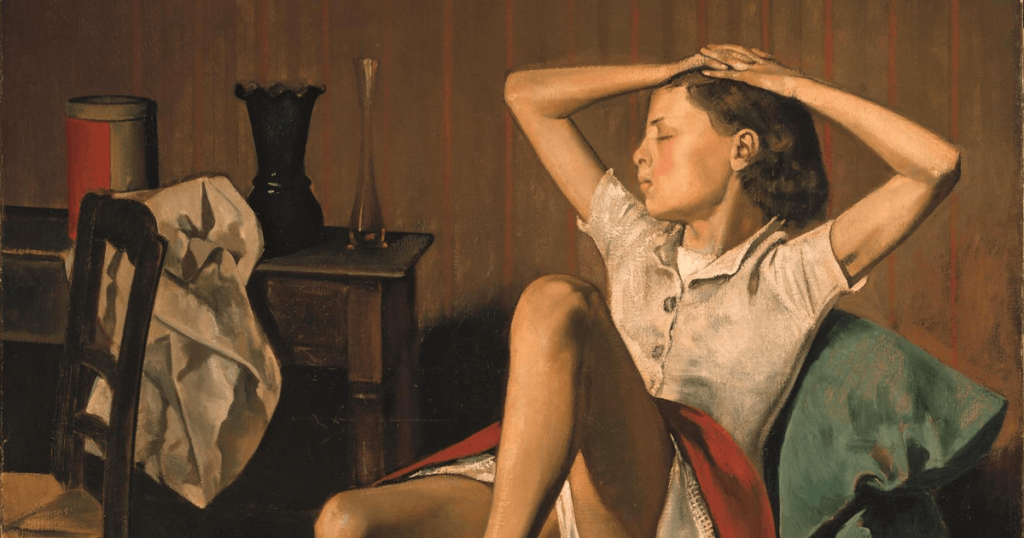Sensibility and Sense
A petition to remove a painting from the Met misunderstands the nature of art

When I was last in Paris, in October, I took my four-year-old daughter to see the Derain, Balthus, Giacometti exhibition at the Musée d’Art Moderne de la Ville de Paris. “Some of the darkest, most beautifully saturnine dimensions of the modern imagination are explored” in this exhibition, Jed Perl wrote in The New York Review of Books. Giacometti I knew, and Derain was a revelation, but I had come for the Balthus. I have long admired the Polish-French modernist’s paradoxically naturalistic dreamscapes, often, but certainly not always, dealing voyeuristically with pubescent girls, which, I’ll admit, struck me somewhat differently in my capacity as a father.
This week, as controversy erupted over a Balthus painting on display at New York’s Metropolitan Museum of Art, I was reminded of my own ambivalence to the work—my conflicting wish to appreciate the beauty of the paintings on their own merit while wanting no part in a world in which men project sexual perversions onto young girls. A woman named Mia Merrill has started a petition, which has garnered more than 7,000 signatures, demanding that the Met remove Balthus’s Thérèse Dreaming from its walls. The picture, from 1938, depicts a pubescent girl reclining on a chair with a swatch of underwear exposed. “Given the current climate around sexual assault,” Merrill’s statement read, “the Met is romanticizing voyeurism and the objectification of children.”
However challenging the artwork is—and I wouldn’t deny that it does pose challenges to my own sensibilities—there is something much more chilling about the growing neo-Puritan desire to censor the present and revise the past. I thought the Met’s response was spot on. “A rep for the museum said it won’t remove the painting,” according to The New York Post, “because art is meant to reflect many time periods—not just the current one.”
I hope they’ll be able to stick to it.

